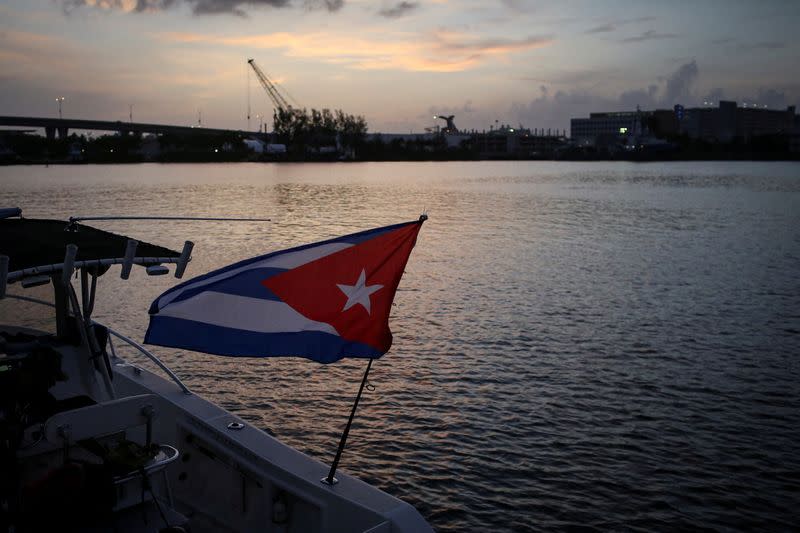Help Wanted: Cuba's government turns to growing diaspora for investment
OPEN INVESTMENT FUND FOR THE LEFTNovember 14, 2023

HAVANA (Reuters) - Cuba wants to tap its fast-growing overseas population for fresh investment to lift its sinking economy, a top foreign ministry official told Reuters this week, as the communist-run nation looks to overcome its worst downturn in decades.
Food, fuel and medicine shortages have pushed a record number of Cubans to leave their Caribbean island home in the past two years, sapping the nation of resources necessary to jump-start an economy already shackled by the pandemic and stiffened U.S. sanctions.
This migration wave includes many young people and "is having the greatest impact in history in terms of demographics, because of its composition," said Ernesto Soberon, director of Consular Affairs for the Cuban Foreign Ministry.
Soberon told Reuters in a wide-ranging interview in Havana on Monday that the exodus represents a loss but also an opportunity as the government seeks to revive the ailing economy.
Cuban expats have already invested in bed-and-breakfasts, eateries and other activities on the island, but Cuba would like to see more capital flow, he said.
"Today Cubans abroad have no limits on how they can participate in the economic life of their country," he said, referring to restrictions once placed upon them by the government.
Over 400 Cuban citizens living in more than 40 countries arrive on the island this week to discuss Cuba's evolving economy and other issues with the government - the first such conversations between Cuba and its ballooning diaspora in nearly two decades.
The conference is expected to attract Cubans living off island but with favorable views of their home country, including businesspeople, economists, and members of foreign resident associations.
The landscape has changed dramatically since the last time the two groups formally met in 2004, under former leader Fidel Castro. Around 2.5 million Cubans and their descendents now live off the island, Soberon said.
Cuba in 2021 lifted a ban on private enterprise, considered a scourge under Castro. And the island's government, which once limited the travel of its citizens, now allows most to come and go freely, though it still restricts dissidents, athletes and some others.
Some things, however, have not changed, said Soberon, who said the Cold War-era U.S. embargo has only stiffened over the years, with sanctions complicating the financial transfers needed to start and run a business.
"You can't just go back and forth with a bag full of cash," he said.
The administration of U.S President Joe Biden has shown tepid support for small business on the island but says Cuba must improve its human rights record before it grants concessions. It stopped short recently of announcing expected new measures to ease the flow of capital. In addition, some Cuban Americans have little appetite for working with Cuba's government.
Soberon said the conference on Nov. 18 and 19 would review mechanisms already in place, like remittances, that have already begun to serve as seed capital for small businesses for Cubans on the island.
"That will ultimately raise their standard of living so that they want to spend their lives here in Cuba and not abroad," he said.
(Reporting by Dave Sherwood, Editing by Rosalba O'Brien)
No comments:
Post a Comment